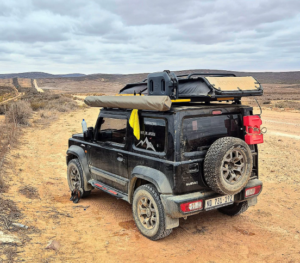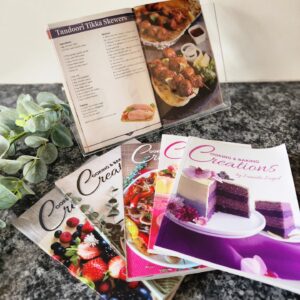Humanitarian, activist and author Dr ZuleikhaMayat takes us down memory lane. She was interviewed on Radio Islam by her son, attorney AslamMayat and wife, Shameema. Here is Part 1 the conversation done days before lockdown.
Shameema: Mrs Mayat your grandfather was born in Dhabel, Surat district, in Gujerat. Tell us about life in your ancestral village, how Dada arrived here, what he did after arriving in Durban, until he ended up in Potchefstroom, once the capital of the Boer Transvaal Republic.
Zuleikha: My forebears were farmers. The policies of, and taxes levied by the British colonialists destroyed the local economy (including textile and farming) resulting in many youngsters leaving the village. Dada, an orphan, and his friends had left for the promise of a new life where the gold rush was in full swing. Aged 16 he arrived in Durban where he worked for a year before heading for Transvaal. He paid for his journey by working as the assistant to the coach driver looking after the horses and passengers. He made it to Charlestown where he worked for a Muslim family for a year before repeating the second half of the journey to Johannesburg.
Shameema: Your book the ‘History of Gujerat’ traces the origins of the Muslim Gujeratis from India to SA. OK, so Dada is in now in Egoli to make his fortune. Then what?
Zuleikha: The Mias’ and Gardees’, also from Dhabel, had arrived much earlier and already had thriving businesses. As is common they provided a support structure for their kinsfolk. My Dada hawked with goods given to him on credit by the Mia’s and Gardee’s. A friend had had enough of this tough, lonely life and returned to Dhabel. My Dada replaced him in Potchefstroom hawking goods to the outlying farms on donkey cart.
Often the Afrikaaner men would be away, some fighting against the British. The wife would let my Dada sleep in the barn and give him a fowl to slaughter. The Boere were illiterate and could not count so the wife would bring the chamber pot full of money, which was kept under the bed and give it to the Arabeer (they did not call Muslims coolies, but Arabs because of their dress) to simply take whatever was due to him. Such was the trust amongst people those days.
Shameema: Was your father born in Potch?
Zuleikha: My father aged five came to SA with his step mother. My father worked in the shop. He married his cousin in Dhabel. My eldest sibling was born in India and she came with my mother to Potch. My mother Aminawas in purdah, but when she realised that she was needed in the shop, she cast it aside. Her popularity was such that soon the customers called the shop “Mina se Winkle”, instead of Dhabel House.
Shameema: Mina being short for Amina?
Zuleikha: Precisely. My father graduated to a bicycle which allowed him to get to further outlying farms more quickly. But he came back home with blisters on his bum.
Aslam: The Anglo Boer war, the British concentration camps, and resultant depression left the Afrikaaner farmers impoverished. That must have affected the family business.
Zuleikha: Goods were sold on credit and payment after harvest. If harvest was bad there was no money and the customer had to be carried until things improved. At one stage the family business went insolvent.
Aslam: It is no longer possible to physically discipline a child, because it leads irreparable emotional scarring.
Zuleikha: Being children of the community, any elder could smack a naughty child. Some fathers would tell the ustad “the flesh is yours the bones are mine”. Often this was taken literally.
Shameema: There was an occasion when your cousin and his friends stole sweets from a ‘Chinaman’ shopkeeper.
Zuleikha: The Chinese gentleman reported to my grand uncle who (subsequently) tied my cousin in a sack and lowered him down the well in the family compound, until the water was right up to his neck. His wife and son screamed for mercy. My grand uncle relented only when he felt the lesson had been well and truly learnt.
Aslam: Your sister Bibi was the clever one. An English lady took her home. Bibi also stood trial for ‘theft’ aged 10.
Zuleikha: We often grew close ties with our customers. Despite apartheid, on a personal level friendships even grew. There was one customer who would often drop in at our home which was at the back of the dukan. On one visit she saw that my mother was not coping with the brood of kids. For a month she took Bibi to her home to play with her own daughter for the day and brought Bibi back in the evening. We kids all helped in the dukan. An Afrikaaner mother and son accused Bibi of giving short change. It was clearly a set up, assuming that because Bibi was a child my father would concede and pay them more to avoid the embarrassment. Bibi was strong headed and adamant. My father backed Bibi and the matter went to trial. For an hour the prosecutor threw money at Bibi to count and give the correct change. Because of Gujeratischool we kids knew our tables. Bibi was faultless. The White boy kept looking at his mother each time a question was put to him. Bibi was found not guilty in a White Court.
Shameema: Schooling was a challenge in the platteland, especially for girls.
Zuleikha: Potch needed a Gujerati teacher. A strictly observant Hindu was brought in. He stayed with us and my mother cooked his meals in separate utensils to avoid cross contamination of his vegetarian diet. Potchschool went only to standard 6. My brothers were sent away to study matric and one brother qualified as a doctor. No one, not even extended family, would ever take a female. Girls had to be looked after by their own parents. I finished matric by correspondence.
Aslam: Your semi autobiographical book a Treasure Trove of Memories tells the collective history of Indians in Transvaal dorpies from arrival in SA, to the birth of our rainbow democracy through your eyes, using your family as a typical Transvaal Muslim family. The guest speaker at the launch was Dr MantoTshabalala, then Deputy Minister of Justice.
Shameema: Let’s leave the boring stuff aside. Yours was a love marriage, revolutionary at the time because in your family marriage was between cousins only – at worst within the same gaam. But your sister Bibi married a Durbanite doctor and you followed her.
Zuleikha: My brother brought his fellow medical students home on weekends, including Mohammed Mayat. The friendship grew from there and we exchanged letters. His interest was perked further by my letters published in the Indian Views, a Durban paper widely read in SA and in other African countries. The editor Moosa Meer was the father of Fatima Meer.
Shameema: In one of your husband’s letters he advised you to use acne cream. What a romantic! I am surprised you stuck with him. Was life in the big city of Durban any different?
Zuleikha: Mahomed was forthright, never avoided speaking the truth. Durban was conservative where I learnt of differences between Memons, Surtees and so on. Us and them. Here the mother in law ran the household and the daughters in law were bored. A group of friends formed the Women’s Cultural Group. We decided to publish a small cook book to raise funds. Despite the scepticism from our businessmen we used their contacts to get 60 day credit from the publisher. We paid the publisher inside 30 days. That was the first Indian Delights. The rest is history.
Shameema: Book sale proceeds go to a capital fund for loan bursaries for tertiary students from all races and religions. Last year WCG gave R1 million loan and zakaat bursaries. Would you agree that the torching of universities has something to do with education, accommodation, food etc all free, with no obligation to pay anything back to society?
Zuleikha: Certainly. Charity must NOT create dependency but must empower and UPLIFT. Our generation got no handouts, yet ML Sultan, WCG and many others ploughed back to lift their communities and the other South African as well. That is the true essence of Islamic belief.
(Aslam) – After qualifying many bursars have to be chased to pay back R500 a month, even though they have bought a home and gone on overseas trips. Two incidents by African Christian bursars bear mentioning. After qualifying one sent a pen, which when you run it over the pages, recites the text of the Holy Quran. Another, many years after qualifying, sent a donation saying ‘here help another student’.
Shameema: What did MahroomMoulanaYunus Patel tell you about ‘Indian Delights’?
Zuleikha: At our first meeting he wryly said: ‘previously the bride was given the Holy Quran, now she is given Indian Delights’. My rejoinder was: ‘Maulana, is that a compliment or a criticism?
* PART2 of this insightful interview to follow in our bumper Eid Edition.


